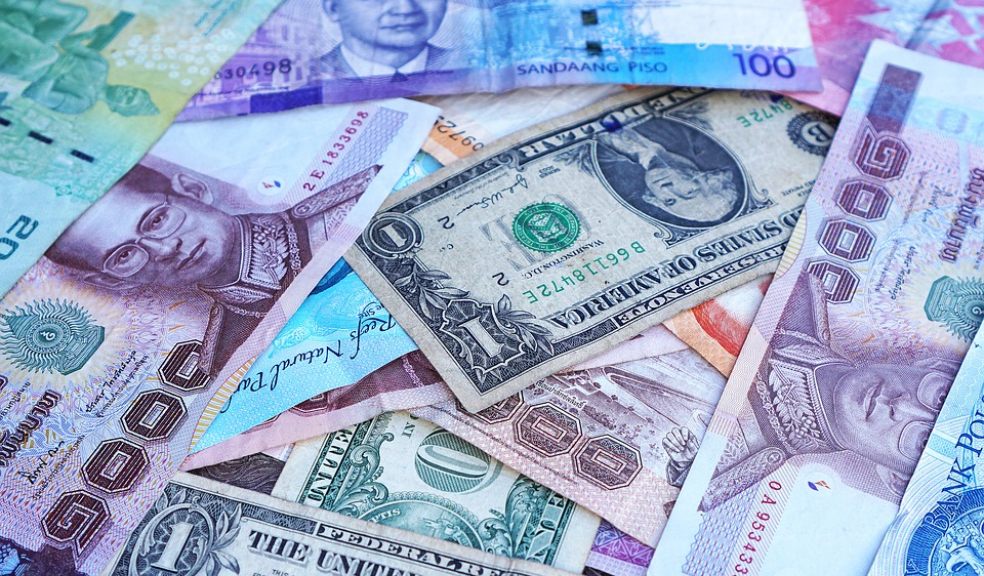
Doing business abroad? Save money on currency exchange
Nowadays, doing business involves international cooperation more and more. The EU's open borders encourage companies to look for new opportunities in other countries. Most often, such collaborations involve foreign currency transactions. How can your firm benefit from making the right currency exchange decisions?
Do not wait for the perfect moment
There are numerous factors that determine the value of a country's or zone's currency. And when currency exchange comes into play, that number tends to double. If you have a lack of knowledge about financial mechanisms and don’t follow currency markets on a daily basis, it can be difficult to notice that from one day to the next a currency’s value may fluctuate. This is often a result of the publication of a central bank’s statement or important economic statistics. However, these publications are only a tiny fraction of the reasons why there may be movement in exchange rates. Even political events in distant parts of the world can affect investor sentiments in such a way that, for the same reasons, some currencies gain value while others lose.
Fluctuations in exchange rates may, in turn, mean that goods purchased abroad suddenly become more expensive or cheaper. In the case of large-scale transactions, this can, for example, mean lower profits.
How to avoid the so-called ‘currency risk’ when, for example, you do not have enough time to dive into the labyrinth that is the world of currencies and accurately select the most advantageous moment for currency conversion?
There is quite an effective happy medium. Simply, spread the whole process over a period of time and divide the total amount into instalments. Instead of one transaction per month or quarter, you can opt for three or four smaller transactions, evenly separated by days or weeks.
What are the benefits of doing it this way? "When exchanging currencies, it is not so much a matter of earning money as a matter of limiting loss. By performing several transactions on different days, the impact of individual market events on the exchange rate in a given period is limited," explains Bartosz Grejner, Conotoxia Analyst.
The ABCs of currencies
If there is no chance for dividing your currency exchange operations into tranches, another solution is to familiarise yourself with currency basics and follow the events that affect exchange rates.
First of all, let's focus on central banks. As a rule, they publish interest rate information once a month, thus limiting the influence of inflation or deflation. But interest rates also affect loan costs or yields on government bonds. The latter may attract investors and create demand for the currency of a given country, i.e. it also has an impact on the probable increase in the currency's value.
Moreover, most frequently once a month, statistical offices publish important economic data, e.g. on industrial production, construction, agricultural sector, employment, unemployment, wage increases, sentiment of entrepreneurs and consumers. They create a picture of the country's economic condition, but also in comparison with the so-called ‘median of expectations’, they say a lot about trends, which is also an important determinant of exchange rates.
Another factor that should be considered is forecasts from market experts regarding a currency’s value, which are published in the media. "Market experts create predictions by following events and assessing the impact of factors from the political, economic, climate and possibly international conflicts on finances," explains the analyst.
Of course, having sufficient knowledge of currency exchange does not translate into a guarantee of the most favourable moment. Knowledge of currency issues, however, helps to avoid mistakes and losses, which is really what this is all about.
Which companies can save on currency exchange?
Optimization of currency exchange is an issue that should be of interest to all companies with international business and foreign currency settlements. For small and medium-sized enterprises from the transport, freight forwarding and logistics sectors it is often a matter of being present on the market or not. Properly planned currency exchange with attractive rates (e.g. found at the financial platform Conotoxia.com) may contribute to a company’s savings and allow the offering of competitive prices for their services, as well as for further functioning and development.
Another sector that could benefit from advantageous currency exchange is e-commerce, any companies that sell their products on global markets or import goods from abroad. In fact, wise exchange rules should be applied by all companies that trade in foreign currencies.
There is still the question of how to transfer currency to foreign contractors. Among the ample means currently available, online financial services are becoming more and more prevalent. For example, Conotoxia.com offers money transfers in 30 countries of the European Economic Area. The platform provides as many as 26 currencies to choose from. Not to mention that transactions are safe and secure: https://conotoxia.com/money-transfer

















